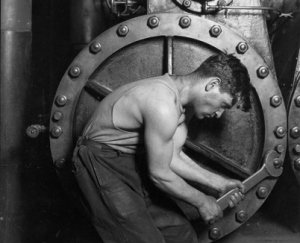Recent research published in The Atlantic indicates that folks in creative and professional jobs might benefit from a differently  structured workday:
structured workday:
“A shorter workday works particularly well for knowledge workers—people in creative or professional jobs—who can work productively for about six hours a day, compared to the eight hours manual laborers can churn out, according to Salon. Unlike machines, humans operate on a cyclical basis, which means our energy and motivation fluctuate in peaks and troughs. Cognitive workers tend to be more focused in the late morning, getting another energy boost in the late afternoon when lung efficiency peaks.
It’s been about a century since the economist John Maynard Keynes first touted the six-hour workday, predicting that by 2030 only extreme workaholics would work more than 15 hours a week. It was around the same time that Ford cemented the 40-hour workweek as a labor norm, but in 1930, Kellogg’s introduced the six-hour workday, which proved to be immensely popular with staff members and lasted until 1985.”
Worthy of discussion, for sure. Does the Christian tradition’s emphasis on the rhythm of work and leisure have anything to say here? What do you think?
Image: “The Money Changer,” Max Geisser. Courtesy of the Grohmann Museum.











